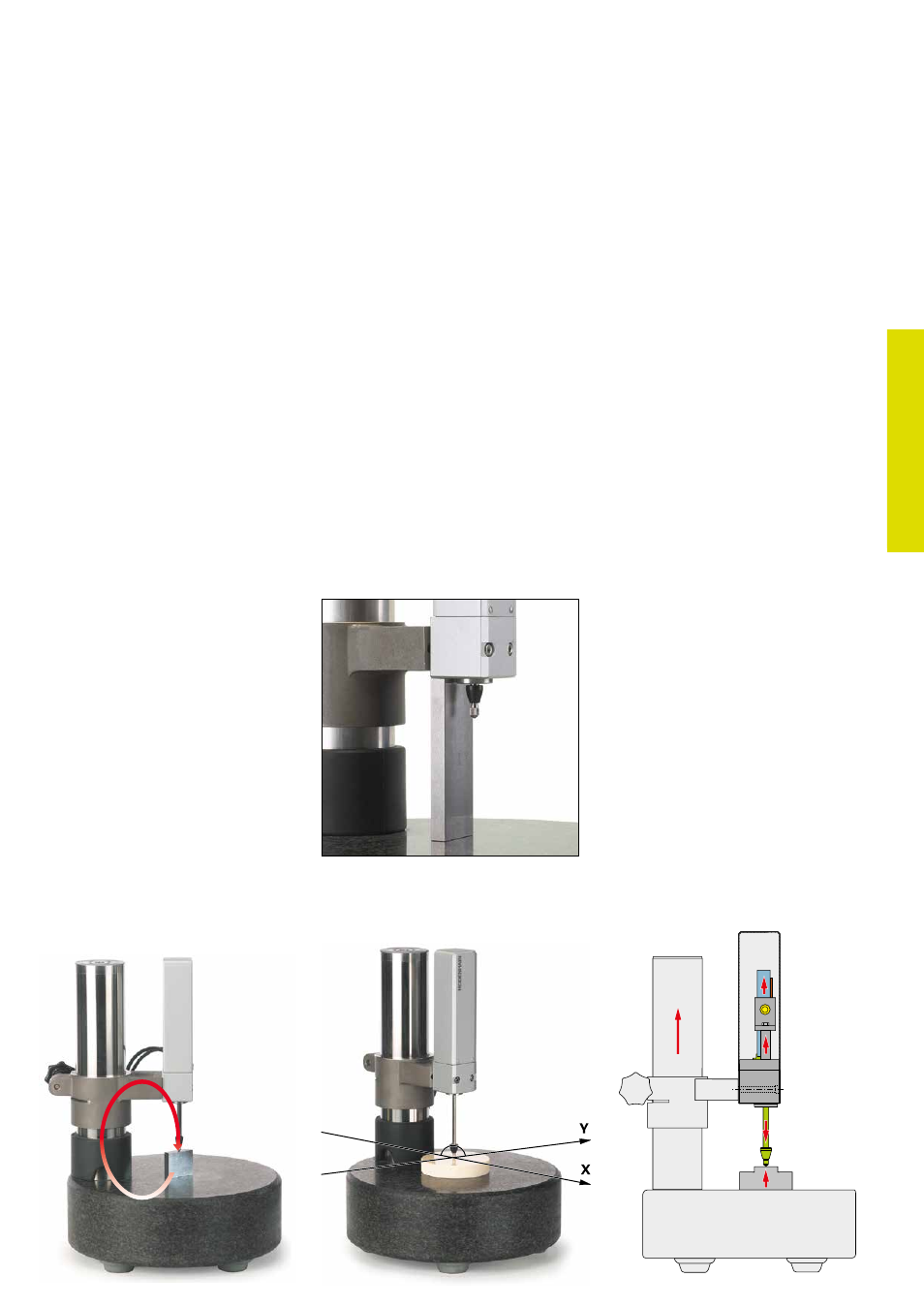HEIDENHAIN Length Gauges User Manual
Page 13

13
Application-dependent error
Other factors besides the system accuracy
also influence the attainable total accuracy
of measurement. These include in particu-
lar the ambient temperature and tempera-
ture fluctuations during measurement as
well as a stable, orthogonal measuring
setup.
All components included in the measuring
loop,
such as the holder for the measured
object, the gauge stand with holder, and
the length gauge itself, influence the result
of measurement. Expansion or deforma-
tion of the measuring setup through me-
chanical or thermal influences adds directly
to the error.
Mechanical design
A stable measuring assembly must be
ensured. Long lateral elements within the
measuring loop are to be avoided. HEIDEN-
HAIN offers a stable gauge stand as an
accessory. The force resulting from the
measurement must not cause any meas-
urable deformation of the measuring loop.
Length gauges from HEIDENHAIN operate
with small gauging force and have very
little influence on the measuring setup.
Orthogonal mounting
The length gauge is to be mounted so that
its plunger is exactly orthogonal to the
measured object or the surface on which it
rests. Deviations result in measuring error.
The accessory HEIDENHAIN gauge stands
with holders for an 8 mm clamping shank
ensure orthogonal mounting. Length
gauges that provide planar mounting
surfaces
are to be adjusted in the direction
parallel to the mounting surface (Y) to be
perpendicular to the measuring plate. A
quick and reliable adjustment is possible
with the aid of a gauge block or a parallel
block. The perpendicularity to the measur-
ing table (X) is already ensured by the
gauge stand.
Thermal characteristics
Temperature variations during measure-
ment cause changes in length or deforma-
tion of the measuring setup. After a change
in temperature of 5 K, a steel bar of 200 mm
length expands by 10 µm.
Length changes resulting from a uniform
deviation from the reference temperature
can largely be compensated by resetting
the datum on the measuring plate or a
master; only the expansion of the scale
and measured object go into the result of
measurement.
Temperature changes during measurement
cannot be ascertained mathematically. For
critical components, HEIDENHAIN there-
fore uses special materials with low coeffi-
cients of expansion, such as are found in
the HEIDENHAIN-CERTO gauge stand.
This makes it possible to guarantee the
high accuracy of HEIDENHAIN-CERTO
even at ambient temperatures of 19 °C
to 21 °C and variations of ± 0.1 K during
measurement.
In order to measure with complete
accuracy, the length gauge should be
switched on approximately 15 minutes
before the first measurement.
The measuring loop:
All components involved
in the measuring assembly, including the length
gauge
Orthogonal mounting
Thermally induced change in length:
Expansion of the measuring loop components
as a result of heat
